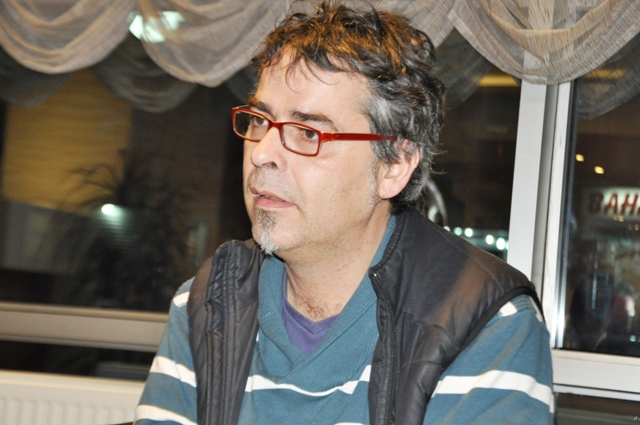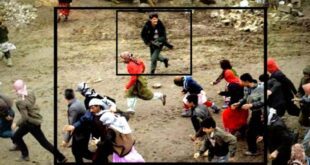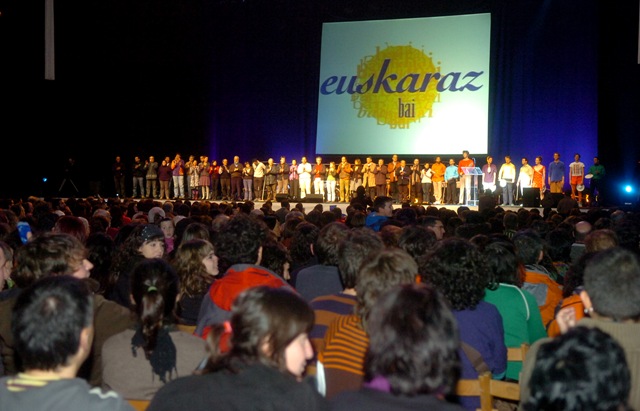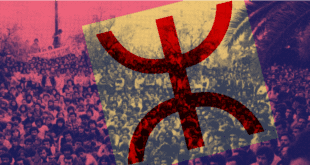Paul Bilbao-Sarria is the Secretary-General of KONTSEILUA which is the umbrella organization for organization working in the field of Basque language. Bilbao-Sarria participated Symposium on Mother Tongue Education held in Amed (Diyarbakir) two weeks ago and gave interesting information about Basque language preservation that some of them are highly controversial for other participants of the symposium. We spoke Bilbao-Sarria about Basque language movement and its achievement, obstacles against its work and how they support normalization plans at municipal level.
Infowelat: Considering a very large field of activities, how can we identify Kontseilua? Is it just a language movement organized at grassroots level or is it more than a language movement taking into account its work inside the local administrations in Basque Country?
Paul Bilbao Sarria: Since 2005 things have changed. Now Bai Euskarari Agreement is a different organization. Kontseilua is one of the organization inside Bai Euskarari. It was a project of Kontseilua but we decided to put it off. Because we thought that that project needs more independence.
The main difference between us and other language movements is that Kontseilua is an organization which is consists of other organizations. In 1997 we organize some seminars in Basque country. It was called the universe of Basque language. More than 100 person from different organizations took part of these process. They thought Basque language civil society needs some kind of louder speaker. For this reason they decided to create an organization made up with organizations. This is the main difference between us and other language movement. Normally other language movements are made of people. In our case there are no people but organizations are unified. That means almost all the companies, associations and organizations that work in favour of the Basque language are the members of Kontseilua. And also that means when Kontseilua speaks and propose something it is the Basque civil society in favour of the language speaks and propose something.
Infowelat: Don’t you have some relations with administration and political organization?
B.Sarria: Yes, we have relations with administration, political parties and trade unions. You must think that we are also powerful. All the organizations inside Kontseilua have thousands of members. For example, all the parents of the children in Basque language immersion schools indirectly are the members of Kontseilua. So the political parties and institutions know that when the Secretary General speaks it doesn’t speak on behalf of him but he speaks on behalf of all Basque language civil society. When we have some proposals regarding what should be the correct language policy for Basque Country, the politicians know this proposal has been approved by all these entities
Infowelat: What does Kontseilua do for Basque language normalization? What has it achieved until now in terms of its short and long term plans since its creation in 1998?
B.Sarria: Kontseilua works in two areas: Political and social. In political area we have made different proposals to change the language policy. We have examined all the language policies in Basque Country. These policies are belong to Spanish state, French State, Basque Autonomous Community, the Community of Navarre and we have prepared interesting documents. Some people say that we only criticise. That is not true. When we criticise something we always suggest an alternative. In the political issues we have made a lot of proposals. One of them is the one which I proposed yesterday at symposium in Amed (Diyarbakir) that when all the students in Basque Country finish the compulsory study they must be multilingual. There is another proposal to promote Basque language in socio-economic arena. With other proposal we promote Basque language in municipalities.
We started a project Bai Euskarari (yes to the Basque language). It was created to promote Basque language usage in companies, to create some kind of labelisation. When a company achieve Bai Euskarari it means that they have taken some commitments in favour of the Basque language and these commitments are consisted of three different levels: Beginners, the second level which offer all the service in Basque language and the third level they which offer all the services in Basque language and ability to work in Basque language. Every year they must pass an evaluation. All these efforts are about to promote the usage of language in social area. There are more than 1200 entities are in that system.
The first big activity Kontseilua made it was an event in five football stadiums at the same time in which it was able to gather 125,000 people. It was the way to say the society we have created the Kontseilua and Kontseilua can organize these kind of big events in favour of Basque language. Our slogan was Bai Euskarari. But with the time passing we realized that people in Basque Country are in favour of Basque language. Nobody says ‘I am against the language. So we decided to change our slogan. And from Bai Euskarari we passed Euskaraz Bai which means Yes in the Basque language. If I say Yes to Basque language it means that I’m in favour of Basque language but I don’t do anything at all or I may just give some euros to ikastolas and it’s okay. When we say Yes in the Basque Language it means you take commitment. If you don’t know the language you are going to start to learn the language. If you know the language, you are going to use the language. The last version of Euskaraz Bai is Euskaraz Bizi Nahi Dut. It means I want to live in Basque language. The meaning is almost the the same like Euskaraz Bai but we think the people understand this better. And we have realized that the people really want to live in Basque language. If you say ‘I want to live in Basque language, it means I am a member of this society, I pay my taxes and I have right to do it. Moreover, the life can not be denied, and we want to live with dignity, in our language.
Infowelat: Can you give some information about how many person have participated this campaign until now? And in which parts of Basque Country have you been much successful?
B.Sarria: It is very difficult to give the exact number. Big cities and small towns are different each other regarding achievement of our campaign. For instance it is very difficult to enforce Basque language in Bilbao even though the highest number of speakers is there. But the problem is that the rate of Basque speakers is not high comparing the Spanish speakers. We think that we must start to work in big cities. If you are going to revitalize language there are two dimensions: Firstly, you need to create speakers but only creating speakers you cannot live in one language. You need to create spaces where you will be able to speak Basque. In my opinion the language policies have taking into account that they must create the speakers but they have forgotten that they must have create spaces. If I want to go to cinema, I have no chance to watch a film in Basque language. We only have one public TV channels in Basque language and some of the programmes of it are sport programme and there are not every genre. We have only one Basque language newspaper founded by civil society. We think that Basque society have chance to use Basque language everywhere. Why the government put a lot of advertisement in newspapers. Why don’t the government approve rules saying that they are going to put advertisement in newspapers only which if there are something in Basque language. This is a language policy that you don’t invest any money and as a result these newspapers will have to change.
We have asked government that there have been a lot of things that you can do without spending any money. According to the law they must put the advertisement in the newspapers which have big circulation. For sure the Basque government can change this rule. I propose to accept a new rule saying that the advertisements are given to the newspapers which at least % 10 of the content are in Basque. By doing this we create another space for Basque language. Another example is the labels of goods or products. When I buy something I want to see this product in Basque language. Why do I have to see the products in Spanish and Portuguese? Normally in Spain allthe product are in these languages. Because the big companies sell the same bilingual products in Spain and Portugal. Why don’t you put into force a rule that asks if you want to sell a product in Basque Country at least it must be in Basque also.
Especially the former government of Basque always had said there must have been the freedom to choose the language and I ask ‘the freedom of whom?’ I am not free to use my language. I cannot use my language wherever I want. They act according to their political interests but Kontseilua only act according to the interests of Basque language.
——————–
*Euskaraz Bai: In Basque language ‘Yes in Basque language’.
 Infowelat Enformasyon Ji Bo Welat
Infowelat Enformasyon Ji Bo Welat






